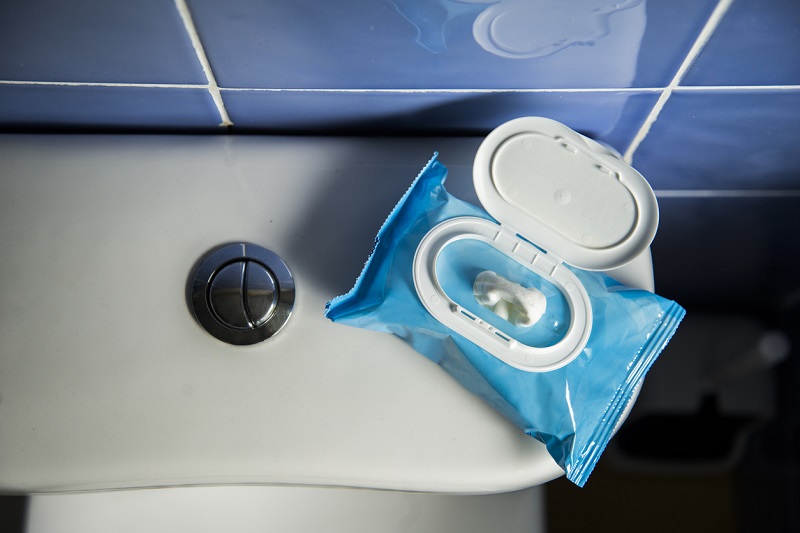When it comes to our bathroom habits, most of us are pretty particular. We have specific routines we follow each time we go, whether showering daily or only using the restroom once a day. Regardless of your routine, there’s one thing most people can agree on. Flushable wipes are more convenient than traditional toilet paper.
Are Flushable Wipes OK To Flush?
Some people may be worried about flushable wipes. While they may be marketed as septic-safe, flushable wipes can cause clogs in your pipes. This can lead to expensive plumbing bills. The wipes may also get caught on other things that have already been flushed.
A growing number of retailers have begun to offer flushable wipes to their customers. But, despite their labeling as flushable, they don’t work. Flushable wipes have caused septic tank backups and damaged sewage pumps. Plus, flushable wipes can also cause a serious infection called coronavirus. Rather than flush them down the toilet, it’s best to put them in your trash instead of flushing them down the toilet.
While flushable wipes are convenient, they are not safe to flush. Many professional plumbers warn against flushing these products. Besides the risk of clogging your drain, flushable wipes don’t break down in the water like toilet paper.
Are Flushable Wipes Flushable 2023?
Flushable wipes may be your answer if you are worried about the environment. These wipes are made of plastic that can be flushed down the toilet. However, they are not completely biodegradable, so it is important to dispose of them properly. In addition, only bodily waste and toilet paper should be flushed down the toilet. On the other hand, wipes should be disposed of in the trash.
According to the Association of Nonwoven Fabrics Industries, flushable wipes must meet strict testing standards to meet the requirements. They must pass seven tests measuring biodegradation, disintegration, and sewer line passage. This testing process is voluntary, but it is necessary before flushable wipes are sold.
Although wet wipes are safe for small children, you should avoid flushing them down the toilet. They can cause problems with septic systems and plumbing. They can clog pipes and cause sewer backups. Furthermore, they can cause septic tank blockages, leading to mold problems.
How Long Does It Take Flushable Wipes To Breakdown?
Many people are concerned about the impact of flushable wipes. Despite heavy advertising, the products continue to be widely sold and disposed of. The problem is that flushable wipes are not designed to break down completely when they come in contact with water. Instead of disintegrating into small pieces, they remain in one piece in the sewer. This can lead to clogs in home plumbing systems and slow wastewater flow.
The first step in preventing sewer and plumbing system blockage is properly disposing of wipes. A flushable wipe reduces the risk of clogging, leading to expensive plumbing repairs. Some wipes are biodegradable or compostable, which can break down over time. If the wipes meet certain standards, they should be safe to flush.
Some flushable wipes contain a mixture of natural and synthetic polymers. Some contain chemical additives to make them more biodegradable. These wipes contain more PET than non-biodegradable wipes and may not break down completely in water.
Do Flushable Wipes Dissolve In Water?
There has been some controversy over whether flushable wipes are safe. One study found that 1% to 4% of wipes in New York City are flushable. This includes baby wipes. Other studies have shown that flushable wipes can cause health risks. A recent study examining a variety of brands of wet wipes in the city found mixed results.
Many of these wipes are advertised as flushable, but their presence has caused clogs in sewer systems. Clogged drains can cause flooding and costly repairs. This can even result in water shortages for entire neighborhoods. In addition, synthetic wipes are harmful to the environment.
The main difference between wet wipes and toilet paper is how they dissolve in water. While toilet paper breaks apart upon contact with water, wet wipes retain their consistency and remain moist even after being flushed. As a result, they can cause major problems for your sewer system, especially if you use them frequently.
Are Flushable Wipes Flushable 2021?
Flushable wipes are a growing industry heavily promoted by brands like Charmin and Cottonelle. However, these products are only partially flushable, and many can clog your sewer and toilet, costing you hundreds of dollars in plumbing services. Recently, Consumer Reports did a test to test the ability to flush four popular brands of wipes.
As a condition of being flushable, wipes must pass seven tests. One major test examines how well the wipes disintegrate between your home and the first pump station. This test takes between 30 and 60 minutes. In the meantime, you can use a plunger to remove the wipes from the pipe, but it won’t remove any buildup.
The problem with flushable wipes is that they need to break down quickly. Because they’re made of paper pulp, they don’t break down quickly as toilet paper does. Instead, they remain intact in sewer pipes. This results in blocked drains and backups. Furthermore, these wipes are not biodegradable and could endanger the health of humans.
What Can You Use Instead Of Flushable Wipes?
Flushable wet wipes can cause several problems for plumbing and the environment. While they can be a convenient way to clean up after children, they don’t completely break down like toilet paper and can clog pipes and septic systems. Instead of flushing them, you should throw them in the trash. However, some alternatives to flushable wipes are safer and more environmentally friendly.
Some wipes are alcohol-based, while others are alcohol-free. The texture of wipes can either be smooth or textured, and they can be single-ply or double-ply. If you have sensitive skin, consider a cloth wipe instead. Some people prefer the extra cleansing power of moist tissues.
Another alternative to flushable wipes is using tissues or napkins instead. These are softer and more absorbent than paper towels and can be used as a substitute for toilet paper. Paper towels are rougher, but don’t flush them as they can clog pipes.
Do Wipes Or Toilet Paper Work Better?
Flushable wipes are made of a wet material that can be flushed. These wipes are often softer than toilet paper and can remove odor-causing bacteria. They are available in many forms, including soft packs, on-the-go packs, refill bags, and pop-up tubs. These wipes are septic safe and are an alternative to toilet paper.
Flushable wipes are much more affordable than toilet paper. Many people find that wet wipes are more comfortable and more effective than toilet paper. They are also more convenient than toilet paper. However, toilet paper is a better option for some people, especially those uncomfortable with the feel of single-ply paper.
Both types of wipes have their benefits. Flushable wipes are better for the environment. They contain chemicals that break down poop particles and remove bacteria. This helps to prevent urinary tract infections and anal fissures.
Why Shouldn’t You Use Wet Wipes?
Wet wipes are a convenient way to get clean and comfortable while using the toilet. They are also prescribed for some conditions. However, we should refrain from flushing these wipes down the toilet. Although wet wipes are marketed as “flushable,” they may not break down as easily as toilet paper, which can result in a costly plumbing bill.
If you need to check whether wipes are flushable, check the label. Nearly half of flushable wipes contain PET, a synthetic polymer often mixed with natural polymers. These substances are often used to give wipes strength and durability. In theory, they should break down easily in water. However, many people still use non-flushable wipes.
Some utilities have even taken action against wipe manufacturers. These wipes may need to break down properly in sewer systems, and some utilities have found them in wastewater treatment facilities and sewer pipes. These wipes can clog the pipes, causing a backup in the system. Moreover, they contaminate waterways with fecal matter. In addition, the industry has already been sued for misleading consumers about the product’s ability to flush.
Conclusion
Septic systems can clog with any amount of plastic in wet wipes. Since flushable wipe manufacturers in the United States are not legally required to pass tests, they can label any wipe as “flushable.” That means you could be flushing something surefire to cause a clog. Keep the pipes clear by not flushing wipes, wash your hands for 20 seconds, and take care of your health and your family. The people who flush non-flushable wipes down the toilet, such as makeup-removing wipes, baby wipes, and disinfecting wipes, are at fault, according to to wipe manufacturers.



